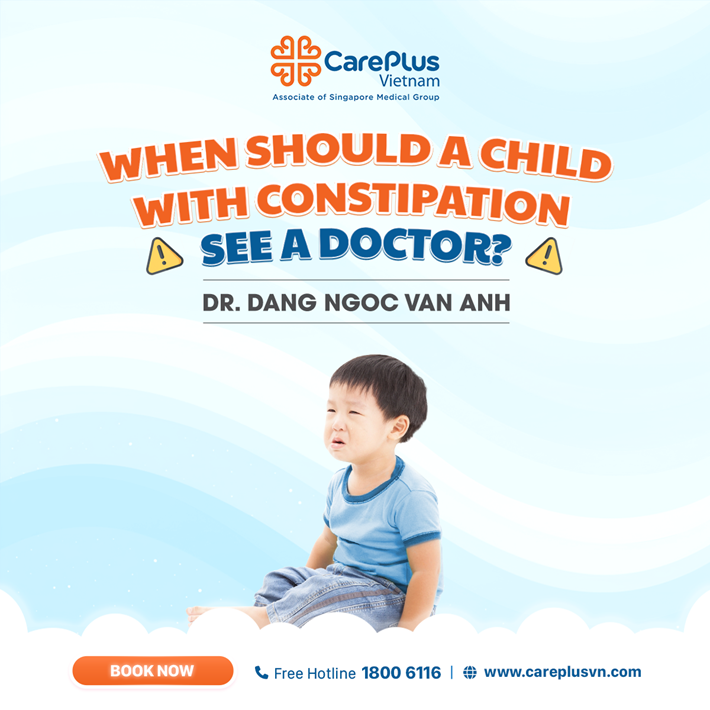When Should Constipated Children See a Doctor?
Constipation is a common issue in children of all ages. A constipated child may have fewer bowel movements than normal or have difficulty passing stools, which may be large and hard or cause pain during bowel movements. Most constipated children do not have any underlying medical conditions causing their symptoms. Constipation is often resolved through dietary or behavioral changes or sometimes with medication.

4/3/2024 8:48:00 AM
What is normal bowel movement for children?
In the first week after birth, infants typically have about 4 bowel movements per day. Breastfed infants tend to have more bowel movements than formula-fed infants.
In the first three months of life, breastfed infants usually have around three soft stools per day. Some breastfed infants pass stools after each feeding, while others may only have a bowel movement once a week. All of this is normal, so breastfed babies are less likely to experience constipation.
Most formula-fed infants have bowel movements 2 to 3 times a day, though this can vary depending on the type of formula they're given.
-
By the age of two, toddlers typically have one to two bowel movements (formed but not hard) per day.
-
By the age of four, children may have one or two bowel movements per day.
Signs that your child may be constipated?
Constipated infants may have stools that are hard or pellet-like. They may cry when trying to have a bowel movement. They may also have bowel movements less often than before, such as once or twice a day instead of the previous three to four times a day.
For older children, if they have fewer bowel movements than usual or complain of pain during bowel movements, they may be constipated.
For example, a child who typically has one to two bowel movements a day may be constipated if they suddenly don't have a bowel movement for two days. However, a child who typically has a bowel movement once every two days is not considered constipated if each stool is soft and passes without difficulty or pain.
When should constipated children see a doctor?
Constipation usually only occurs in the short term and can often be resolved with proper care. However, if constipation persists and your child exhibits the following symptoms, you should take them to a healthcare facility promptly for timely intervention.
If your child is under four months old, see a doctor and seek advice on treating constipation if your child has fewer than three bowel movements per week accompanied by vomiting or excessive crying.
-
If your infant (under four months old) has hard stools (not soft or loose).
-
If your infant or young child refuses to eat or loses weight due to constipation.
-
If your child has abdominal distension or vomiting.
-
If you see blood in your child's stool or diaper.
-
If your child experiences repeated bouts of constipation.
-
If your child complains of pain during bowel movements.
-
If you have difficulty toilet training your child or they show fear of having bowel movements.
-
If you have any concerns about your child's bowel habits, it's essential to seek medical advice.
Constipation in children is one of the most common gastrointestinal disorders. Equipping yourself with basic knowledge about managing and caring for children properly can help parents effectively treat constipation in children, ensuring their health and intelligent development.
Source: Uptodate 2024 Constipation in infants and children